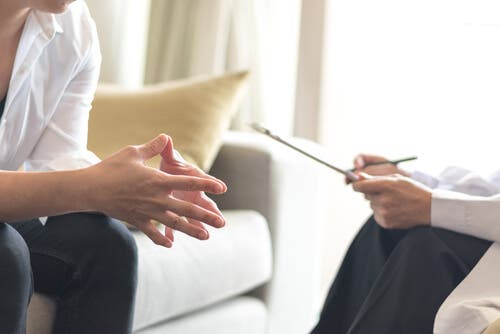The Importance of Health Education


Written and verified by the doctor Leonardo Biolatto
Health education is a fundamental pillar for any country and society as a whole nowadays. It is a process that seeks out ways for the population to acquire the knowledge and skills necessary that will allow them to make good decisions regarding their own health.
Although many people think that the concept of health is simply the absence of disease, the truth is that it encompasses many more aspects. We must understand that health is a state of personal and social well-being.
Additionally, it’s important to keep in mind that to achieve good health, you must hold each person responsible for their own well-being. This is not only when it comes to adopting healthy habits by oneself, but also when it comes to influencing others positively.
Therefore, in this article, we’ll explain the importance of health education. We’ll also mention some typical measures and proposals.
What is health education?
In recent years, health education has been gaining strength and is one of the basic concepts in education and society. According to the World Health Organization, the definition of health education is as follows:
“Educational activities designed to expand the population’s knowledge of health and to develop personal values, attitudes, and skills that promote health.” -WHO

According to other authors, it is a process by which people learn to behave in a way that favors the promotion, maintenance, or restoration of health. In other words, healthy attitudes and habits are incorporated.
Furthermore, this process seeks that each person develops a critical capacity to make decisions regarding their health. Thus, this allows them to take of their own health and – if need be – that of others.
Health education also helps us to analyze all the factors that influence the overall health of a population. For example, this includes examining environmental, social, or economic factors that cause disease or health complications.
You might like: How to Protect Yourself Against Coronavirus If You Have Diabetes
How to carry out health education
Like any other educational process, we can impart health education through different methods. First, there are direct or bidirectional methods. These are methods in which the roles of the educator and listener are established.
To carry out direct methods, there needs to be a certain trust between the person who educates and the person being educated. This may include a class where the teacher transmits the knowledge or carries out a group discussion, for example.
Among these methods, we also find talks on health content and dialogue. A clear example of dialogue is when a doctor makes a series of recommendations directed at the patient during a consultation.

On the other hand, there are indirect methods, which are also called unidirectional. The basis of these is that a person emits a message that can reach a greater number of people through media, such as television.
Among the indirect methods are audiovisual elements. For example, health education can happen through brochures, posters, or newspapers. Also, you can make use of radio, podcasts, or movies.
You might be interested in: Respiratory Health in Times of COVID-19
The importance of the internet
We must emphasize that, at present, the internet is one of the fundamental sources of health education. It is the largest source of information that exists.
However, the problem is that this information may not be the most accurate or even factual. Therefore, you have to know how to use the internet when looking for reliable and educational sources. In fact, there are more and more applications and programs that aim to promote healthy habits, such as these reliable sources.
Finally, it should be noted that health education is not a process that focuses only on young people, but rather seeks the collaboration of the entire population. It is never too late to start to become aware and take collective responsibility for our health.
All cited sources were thoroughly reviewed by our team to ensure their quality, reliability, currency, and validity. The bibliography of this article was considered reliable and of academic or scientific accuracy.
- Educación para la Salud | Blog de Enfermería basada en la evidencia. (n.d.). Retrieved April 16, 2020, from http://www.fundacionindex.com/blog_oebe/?page_id=100
- FAPap – Recursos-utiles-en-educacion-para-la-salud. (n.d.). Retrieved April 16, 2020, from https://fapap.es/articulo/298/recursos-utiles-en-educacion-para-la-salud
- Educación para la Salud. (n.d.). Retrieved April 16, 2020, from http://eps.aragon.es/
This text is provided for informational purposes only and does not replace consultation with a professional. If in doubt, consult your specialist.








